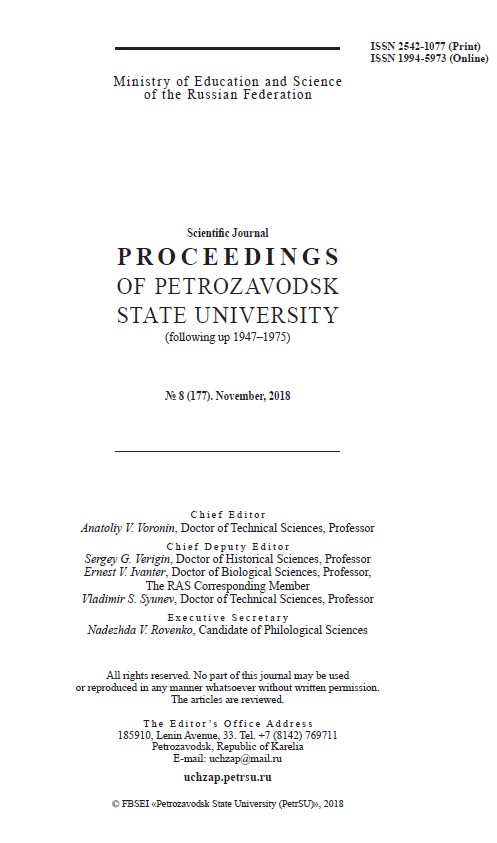ПЕРСПЕКТИВЫ ИСПОЛЬЗОВАНИЯ ЭНТОМОПАТОГЕННЫХ НЕМАТОД ПРОТИВ ПРОВОЛОЧНИКОВ НА КАРТОФЕЛЕ В ОРГАНИЧЕСКОМ ЗЕМЛЕДЕЛИИ СЕВЕРО-ЗАПАДНОГО РЕГИОНА РФ
PROSPECTS OF USING ENTOMOPATHOGENIC NEMATODES AGAINST WIREWORMS ON POTATOES IN ORGANIC AGRICULTURE OF THE NORTHWEST REGION OF THE RUSSIAN FEDERATION
Author(s): Tatiana A. Danilova, Leonid G. Danilov, Svetlana M. SinitsynaSubject(s): Agriculture, Regional Geography, Environmental interactions
Published by: Петрозаводский государственный университет
Keywords: wireworms; potato; entomopathogenic nematodes; Entonem-F; Nemabact; Protonem; organic farming;
Summary/Abstract: The article presents test results for biological preparations Entonem-F, Nemabact and Protonem, produced on the basis of entomopathogenic nematodes and used as a means of protecting potatoes from click beetle larvae or wireworms for the purposes of organic farming in the northwestern Russia, including the Republic of Karelia. Invasive larvae of the nematodes are microscopic worms adapted to long-term existence in the soil without food and compatible with many means of plant protection. The mechanism by which entomopathogenic nematodes are able to infect and reproduce in the host insect involves a mutual relationship between nematodes and their symbiotic bacteria. High virulence of nematode-bacterial complexes against insect pests and their safety for humans, warm-blooded animals and plants form the basis for using entomopathogenic nematodes as effective biological control agents against wireworms, which are the most common pests on potatoes in the region. The use of nematode preparations for protecting potatoes from wireworms is undoubtedly of scientific and practical importance, as it creates real prerequisites for using such preparations in organic farming, ensuring the production of high-quality environmentally safe products. The results of field and production tests showed high biological efficiency of nematode biopreparations (from 69.3 % to 100 %) against wireworms on potatoes at the nematode rate of 5 billion/ha of invasive larvae introduced into the soil when planting tubers or on the soil surface under the plants in the budding phase. With the use of nematode biopreparations generally weak damage to tubers by wireworms is observed. A new preparation called Protonem on the basis of nematodes of the species Steinernema feltiae protense is not inferior in efficiency to preparations Nemabact and Entonem-F and even with a decrease in the recommended supply to 2.5 billion invasive larvae per hectare has a considerably high biological efficiency of 96,4 %.
Journal: Ученые записки Петрозаводского государственного университета
- Issue Year: 2018
- Issue No: 8 (177)
- Page Range: 17-22
- Page Count: 6
- Language: Russian

